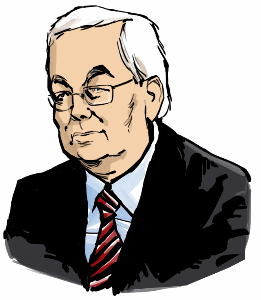© Gunnar Tómasson
18 June 2015.
Background
The Shakespeare Opus may be likened to Pythagorean Sudoku puzzle with a vast number of sub-puzzles set within a set of master-puzzles suited to specific aspects of what Francis Bacon termed Advancement of Learning – a process which extends back into pre-historic time.
The following master-puzzle links the objective of the Shakespeare Authors – the Seventeenth Earl of Oxford, Sir Francis Bacon and Ben Jonson – to the milestone in the learning process which historically has been linked to The Second Coming and Judgement Day/God’s Day of Wrath.
In the Augustan-Saga-Shakespeare literary tradition, as I refer to it, the learning process which concerns Mankind’s evolution from Paganism to Christianity is held to have commenced with the work of the Four Augustan Poets – Quintus Horatius Flaccus, Publius Virgilius Maro, Sextus Propertius and Publius Ovidius Naso.
The Saga Authors of 13th century Iceland – Snorri Sturluson and Sturla Þórðarson – marked the beginning of the predestinated end of Paganism at some distant future point in time. In due course, the thread left unfinished by the Saga Authors was picked up by the Shakespeare Authors in Elizabethan England under the collective pen name of William Shakespeare.
William Shakespeare appeared in print for the first time with the publication in 1593 of the poem Venus and Adonis, prefaced by a motto from Virgil‘s Amores. The final milestone would eventually be marked by a dialogue in Love‘s Labour‘s Lost (Act V, Sc. i) which includes the longest word in the Shakespeare Opus, honorificabilitudinitatibus.
The importance of this seemingly nonsense word would be underscored by its appearance in Francis Bacon’s private papers and in the so-called Northumberland Manuscript of Shakespeare’s plays.
Earlier, a seemingly nonsense version of Snorri Sturluson’s Edda – the so-called Uppsala Edda – was used to store for future reference a number of highly informative key parts of the Sudoku puzzle, including the final five words of a section supposedly listing “law-speakers” of the Icelandic Althing at Thingvellir: Snorri Sturluson í annat sinn (Snorri Sturluson a second time).
In the following solution of a master-Sudoku puzzle, this term is associated with The Second Coming and the Latin words Dies Irae or Day of Wrath.
***
I. Let base conceited wits admire vile things
(Ovid’s Amores)
20165 = Vilia miretur vulgus: mihi flauus Apollo
16408 = Pocula Castalia plena ministret aqua. [1]
Great feast of Languages
8282 = Will Shake-Speare
3360 = The Globe
9008 = 29 June 1587 – 29 June 1613 [2]
Living on the almes-basket of words – Love’s Labour’s Lost, Act V, Sc. i.
Boy:
15678 = They haue beene at a great feast of Languages,
9992 = and stolne the scraps.
Clown:
21528 O they haue liu’d long on the almes-basket of words.
Judgement:
10 = Ten-speaking Head/Father
104431
II. A poor player’s hour upon the stage
(See Macbeth, Act V, Sc. v)
The Globe = St. Peter’s Basilica
-1000 = Darkness
4988 = The Vatican
3781 = The Pope
Clown – continued:
19431 = I maruell thy M. hath not eaten thee for a word,
16196 = for thou art not so long by the head as
14034 = honorificabilitudinitatibus:
20669 = Thou art easier swallowed then a flapdragon.
Page:
7463 = Peace, the peale begins.
Judgement:
3321 = Dies Irae – Day of Wrath
7615 = Get thee hence, Satan. (Jesus in Matt. 4.10)
Shake-Speare’s Coat of Arms
7933 = Non sanz droict [3]
104431
III. The Longest Word
(See Introduction)
14034 = honorificabilitudinitatibus:
16450 = Snorri Sturluson í annat sinn – Snorri Sturluson a second time
1000 = Light of the World
345 = Soul‘s Earthly Base – Sacred Triangle of Pagan Iceland
7524 = The Second Coming
216 = Soul‘s Resurrection – Triangle Raised to Third Power, 27+64+125=216
39569
IV. Our Ever-living Poet – In Memoriam
(Holy Trinity Church, Stratford)
19365 = IUDICIO PYLIUM, GENIO SOCRATEM, ARTE MARONEM
20204 = TERRA TEGIT, POPULUS MÆRET, OLYMPUS HABET [4]
39569
V. Snorri Sturluson’s Book Perfected
(Uppsala Edda, superscription)
8542 = Bók þessi heitir Edda.
20156 = Hana hevir saman setta Snorri Sturlo son
15735 = eptir þeim hætti, sem hér er skipat.
10539 = Er fyrst frá ásum ok Ymi
18224 = þar næst skalldskap ok heiti margra hluta.
17723 = Síþaz Hatta tal er Snorri hevir ort
13512 = um Hak Konung ok Skula hertug. [5]
104431
[1] Christopher Marlowe’s translation:
Let base conceited wits admire vile things;
Fair Phoebus lead me to the Muses’ springs.
[2] As in 2904 + 1587 + 2904 + 1613 = 9008.
The duration of the Great Feast is measured (i) from the “date” of the Privy Council’s letter of 29 June 1587 “documenting” Marlowe’s service in the interest of his country, and (ii) to the historical date of 29 June 1613 when The Globe theater burned to the ground in symbolic Ragnarök/Twilight of the Gods.
[3] Not Without Right or, with a comma, No, Without Right.
[4] With the judgment of Nestor, the genius of Socrates, the art of Virgil,
Earth covers him, the people mourn him, Olympus has him.
[5] Loose translation: This book is named Edda. It has been put together by Snorri Sturluson in the manner which is here ordered. First is an account of the Aesir and Ymir, thereafter poetry and the names of many things. Last, poems which Snorri has composed for King Hakon and Duke Skuli.
***
Calculator for converting letters to cipher values is at:
http://www.light-of-truth.com/ciphersaga.htm

 Gunnar Tómasson
Gunnar Tómasson